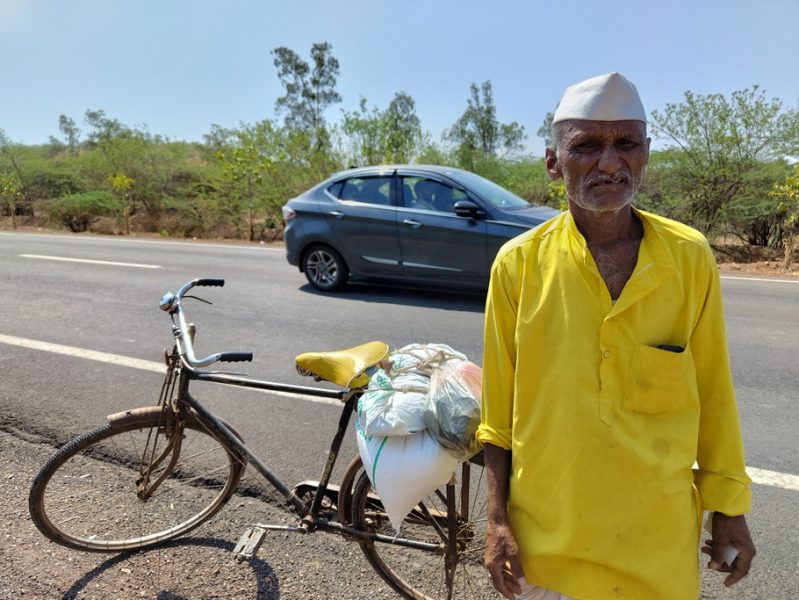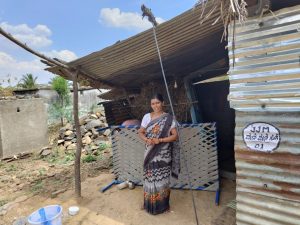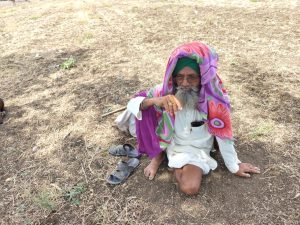
Karnataka polls: Why North Karnataka will decide who forms the govt

With Karnataka set for the big fight on May 10, how are the parties actually poised for the crucial Assembly polls? Who is powerful enough to be king-maker? Who can swing the votes in one party’s favour and who can eat into another’s pie? Muting the cacophony of the tall election promises and political mud-slinging, The Federal brings you a reality check of the poll situation from the crucial North Karnataka region.
North Karnataka, which was instrumental in bringing the BJP to power in 2018, poses a tough test for the saffron party this time around, thanks to rebels like Jagdish Shettar and Lakshmana Savadi storming out of the party at the eleventh hour.
The voters of this region have always played an important part in bringing a political party to power in the state. North Karnataka comprises Kittur Karnataka (Mumbai Karnataka) and Kalyana Karnataka (Hyderabad Karnataka) regions, with 13 districts and 90 assembly seats. Currently, the BJP has 52 seats, Congress 32, and JD(S) six.
Interestingly, the party that crosses 50 seats in North Karnataka normally forms the government in the state. In 2013, Congress bagged 59 seats and formed the government. In 2018, BJP won 52 seats and was the single largest party, but Congress-JD(S) coalition formed the government. Later in 2019, BJP came to power after several Congress and JD(S) MLAs defected to the saffron party.
Until a few days ago, North Karnataka seemed like a saffron stronghold. However, recent events, including the resignations of prominent Lingayat community leaders such as former Chief Minister Shettar, Savadi, Nehru Olekar, NY Gopalakrishna, and others have left the ruling party teetering on the edge.
The North Karnataka region includes Belagavi, Bagalkot, Vijayapur, Kalaburagi, Yadgiri, Gadag, Hubli-Dharwad, Haveri, Bidar, Raichur, Koppal, Vijayanagar, and Bellary districts. In most places, there will be a direct contest between the Congress and the BJP.
What bolsters a party’s chances further is Central Karnataka, which includes the districts of Chitradurga and Davangere. These have a total of 16 seats, of which the Congress currently has four and BJP 12. History shows that if a party bags at least 60 seats across North and Central Karnataka, it usually form the government in the state.
Also read: Karnataka: Why Rahul Gandhi remains a hero in Raichur-Bellary belt
The Reddy factor
Apart from a resurgent Congress, the BJP faces a major threat from its former leader, Gali Janardhana Reddy. The mining baron-turned-politician distanced himself from the BJP after being accused in a string of illegal mining and other cases and later launched the Kalyana Karnataka Rajya Paksha (KKRP), which is likely to eat into the BJP’s vote bank in the Hyderabad Karnataka or Kalyana Karnataka region. KKRP will be quite a force to reckon with in Bellary, Raichur, Koppal, Yadgiri, and Vijayanagar districts.
BJP faces another major threat in the form of Sri Ram Sena founder Pramod Muthalik, who has considerable influence among Hindu activists in North Karnataka. Together, they may eat into BJP’s vote share, encouraging the Congress, which won 32 seats in the last election, to eye a bigger slice of the pie this time.
The JD(S), on its part, may erode the Congress’s vote share but, at the end of the day, the contest will be a direct one between the Congress and the BJP in the region.
The Panchamasali and Kharge factors

The upset Panchmasalis will also lend a helping hand to the Congress. Until now, the Lingayat community has stood like a rock behind BS Yediyurappa, with 70% Lingayat votes going to BJP in the last election. However, the exit of Shettar and Savadi after being denied BJP tickets, came as a big blow to the party. “We have to wait and watch, but Congress will be the gainer this time,” believes Rajeev Patil, a local Gram Panchayat leader from Gulbarga village.
The elevation of Mallikarjun Kharge to the post of AICC president will also help the Congress get the Dalit votes of this region to a large extent. After Kharge became the AICC president, there has been a feeling among the Dalit communities to come together and strengthen his hand.
Raja Bovi, a resident of Ganigapura village in Kalaburagi district and a member of the Scheduled Caste community, put it bluntly, “If we strengthen Kharge’s hand, he will select a chief minister of his choice. If we don’t, his leadership will be questioned.”
Kharge has influence not only in his home turf Kalaburagi but also in the Kalyana Karnataka and Kittur Karnataka regions, which will be a challenge for the BJP.
Also read: Karnataka: Congress’ reliance on turncoats reflects failure to hone winnable talent
STs and Kurubas
Other important king-maker communities include the Scheduled Tribe Valmiki Nayakas and Kurubas. Kurubas have their leader in Congress’s Siddaramaiah, but the party has no significant leader among the STs barring Satish Jarkiholi. But the BJP has plenty in R Sriramulu, Ramesh Jarkiholi, and Balachandra Jarkiholi.
Also, the increase in the ST reservation from 5 to 7 per cent by the Basavaraj Bommai government may swing the ST votes in favour of the BJP.
Veeresh Nayak, a Gram Panchayat member in Raichur, said there are different opinions among the community on the reservation hike. Since the matter is yet to get clearance from the Parliament, the people are still sceptical about the state government’s move.
Governance
Many villagers and townspeople see right through the caste and community appeasement tricks, like the reservation increase, and point out the blatant failure in governance by the present government. They feel the local Panchayat Development Officers (PDOs), Tahasildars, policemen, and other government officials are not public-friendly and only work for the people who have “power”.

Range Gouda of Kutanoor, a village in Bagalkot, pointed out that the 7 kg free rice given by the earlier government had now come down to 5 kg. “There are no drinking water facilities for the villages in our area. We have to travel from one village to another to get something as basic as drinking water,” he said.
The Federal met Parasappa Siddappa Bheemannavar, aged about 70, on his way from Bagalkot town to his native village Benasina Maradi on his bicycle under the hot sun. “I have been doing the rounds of the local police station and the Tahasildar’s office to get the documents of my land. No one is helping and every time I hear, ‘Come tomorrow’. What shall I do?” the elderly man said with tears in his eyes.
“Every week, I have to go to a nearby town and work as a labourer to buy supplies. I have to look after my ailing wife and three daughters. Why should I vote for a government which has such bad officials?” he asked.
There are many like Parasappa in every village, especially in North Karnataka. Kasturappa Gundanna, who was grazing his goats and sheep in a village in Bidar, said it was very difficult to get the rations from the PDS shops, which seem to be closed all the time. “There is a drinking water problem. Last time, I voted for BJP but I am thinking of voting for another party this time,” he said.
The anti-incumbency factor may end with different types of results in the different regions.
Also read: Karnataka polls will open door for Congress in 2024 LS elections: Shivakumar
The Modi factor
Ramesh Yurumurs, a young man who works for a private firm in Bengaluru, was in his native village on vacation. He said, “We voted for the BJP last time just because of Prime Minister Narendra Modi. We did not even look at the faces of the local leaders. But then we saw ‘Operation Lotus’ happening and how the party formed the government by poaching leaders from other parties. This is such a bad thing for democracy. I think people are looking at such issues.”
Koosanna Shamappa, a resident of Akkimaradi village of Bidar, admitted there was no BJP face in the state except for the national leader Modi. “Here, many of them are corrupt, but to save our nation, we have to admire Modi,” he said.
It is mainly the residents of cities such as Vijayapura, Gulbarga, and Bidar, who are industry and government employees, admire Modi and have a gut feeling about BJP returning to power.
The Rahul factor
Congress leader Rahul Gandhi has his share of admirers too. Rajanna Kupsada, a social activist in Vijayapura, said Rahul had a bad image previously, which has now changed. “We thought he had no future, as he is a bad politician. But his Bharat Jodo Yatra changed his image and now we have got to know about his good intentions,” he said.
“Also, the state BJP has no charismatic leader after Yediyurappa, while the Congress has a good number of frontline and second-line leaders in the city, including Siddaramaiah, DK Shivakumar, MB Patil, Parameshwara, and now Shettar and Savadi,” he added.
The Aam Aadmi Party also enjoys the support of a small number of youths.
Also read: Karnataka polls: All of 27, young idealist AAP candidate takes on political giants in Koppal
Polarisation
Interestingly, issues such as hijab, halal, azan, etc., that were raised and drummed up as national issues, seem to have vanished from the poll scenario. The issues evidently aimed at Hindu-Muslim polarisation are not seen in any parts of North Karnataka, except cities like Belagavi, Vijayapura, and Hubli-Dharwad, where the Hindutva bases are strong.
The campaigning BJP leaders have not mentioned any of these issues in their speeches, hinting that those did not work for them. In North Karnataka villages, The Federal witnessed all communities living in harmony. Yousuf Azmatulla Khan, a moulvi (cleric) at a mosque in a village in Vijayapura’s Bablaeshwara constituency, said there was no polarisation in the village.
However, Ganesh Ramappa, a shopkeeper in Kempapura, a small town on the Gulbarga-Bidar border, said he supported a uniform civil code. “One community shall not get more facilities or sympathy in the name of religion. I support a party which looks into this angle,” he said.
However, basic facilities, including good roads, drinking water, and good governance, seemed to be more important poll issues for most people.


